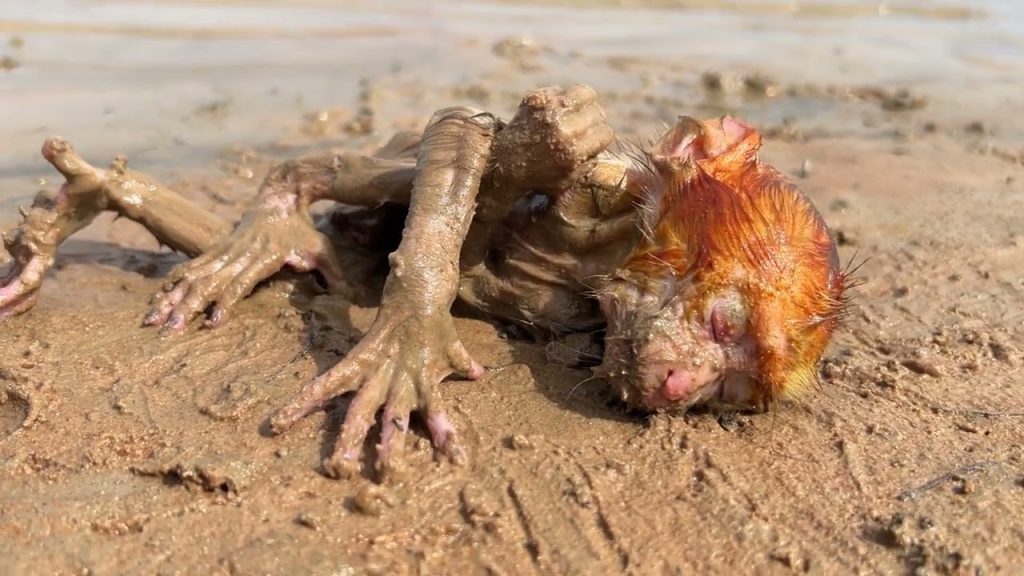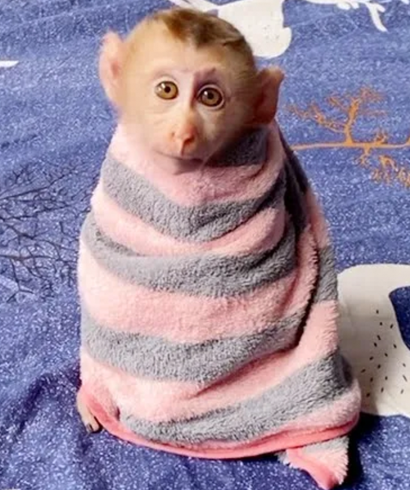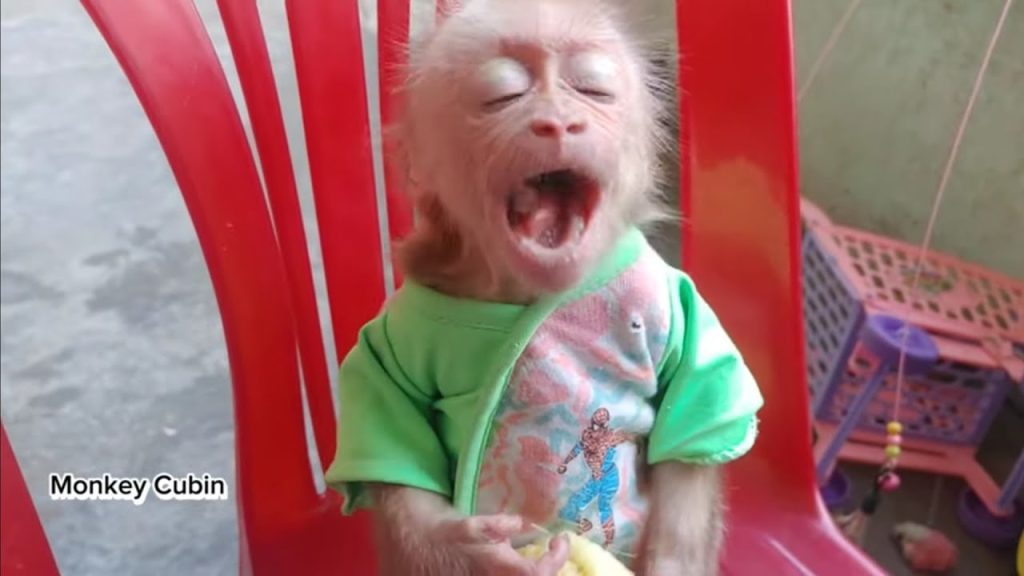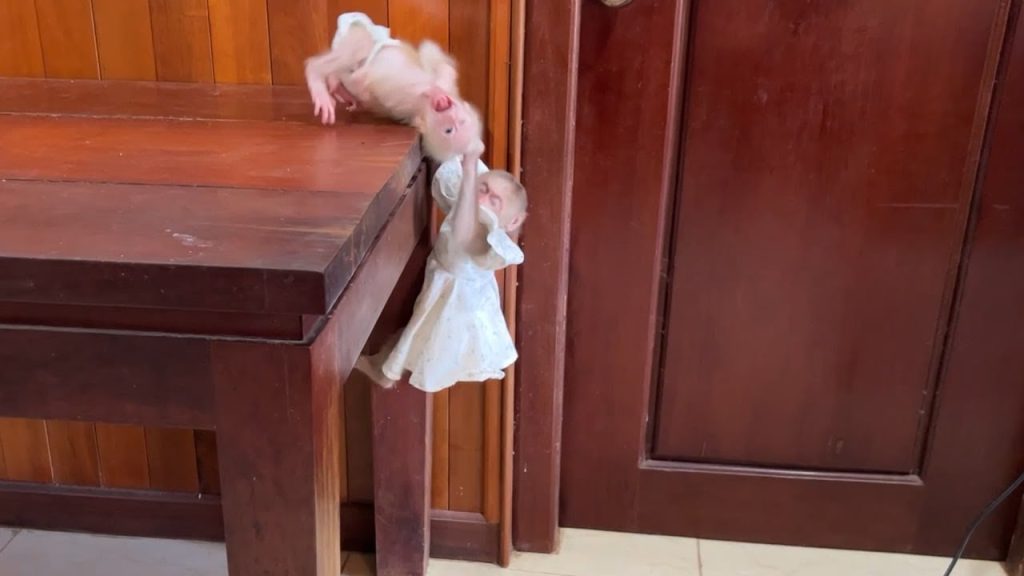
It was a quiet, humid afternoon when rescuers spotted something unusual near the edge of a shallow stream—a tiny baby monkey, barely moving, lying on the warm sand with his eyes half-closed.
At first, they thought he was sleeping. But as they got closer, their hearts sank. His body was damp, his breathing shallow, and his little chest rose and fell slowly, as if each breath was a struggle. His fur was matted with water and mud, and his tiny hands were curled weakly into the sand.
One rescuer gently scooped him up. He was ice-cold to the touch, and he didn’t even flinch. Just a faint whimper escaped from his lips. He had nearly drowned—but somehow managed to pull himself to the edge before collapsing.
“Poor baby,” whispered the caretaker. “He fought so hard.”
They wrapped him in a warm towel and gave him small drops of glucose water to help him regain energy. Slowly, the monkey blinked and looked up, confused but no longer afraid. His weak fingers gripped the rescuer’s hand, holding on like it was the only safe thing in the world.
Over the next hour, he stayed wrapped up and close to human warmth. The vet checked him—no broken bones, just exhaustion and exposure. With luck, he would survive.
The monkey was later named Sandy, in honor of where he was found. He was safe now, finally out of danger.
That night, tucked in a cozy blanket, Sandy slept peacefully—not alone on cold sand, but cradled by love.



